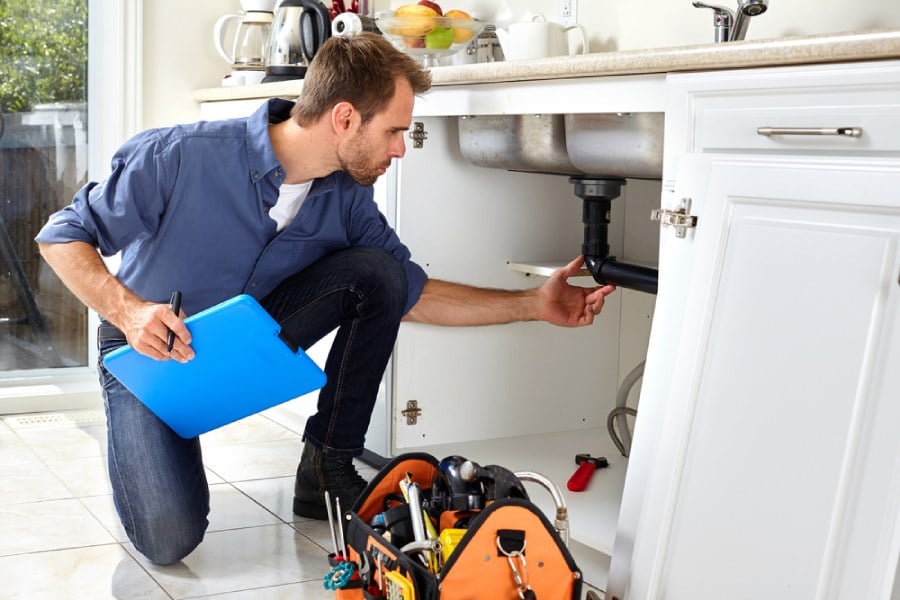
For tradespeople, such as plumbers or electricians, calculating costs to provide quotes for customers is a balancing act. Multiple considerations must be incorporated, including the cost of materials and supplies necessary for the job, overhead expenses for the business and labour costs.
It is in the latter area where some confusion may lie, particularly concerning VAT treatment. This brief guide outlines what you need to know about VAT on labour costs.
Is VAT charged on the cost of labour?
Whether VAT is charged on the labour costs associated with a trade job depends on the type of work being carried out.
Most people assume 20% VAT is charged on labour, but VAT rules in the UK are never straightforward, and can be confusing for those not familiar with them.
VAT treatment of main supply
It is important to note that how labour is treated depends on the VAT treatment of the main supply. Most services provided by tradespeople are subject to a 20% VAT rate. However, some services are subject to a reduced rate of 5%. Other goods and services are zero-rated, while others are exempt or outside the scope of VAT.
When is VAT not charged on labour?
Examples of work carried out on which VAT is not charged include:
- Work on new build housing, which is zero-rated
- A plumber fitting a bathroom in a new house will not charge VAT on the cost of supplying and fitting the bathroom
- Work carried out on new houses by electricians, joiners, and painter-decorators is zero-rated, and VAT is not charged on either the cost of goods or the labour charges when provided together
Another example of charges, including labour, on which VAT is not chargeable is the installation of solar panels.
Other work carried out may be subject to VAT at the reduced rate of 5%, including work on a building being converted into a dwelling.
Labour costs outside of the scope of VAT
Occasionally labour costs will be outside the scope of VAT. For example, labour included within the cost of an MOT test. However, VAT is charged on labour costs for car repairs and maintenance.
For the majority of trades, VAT is not itemised; it is consolidated in the net price on the invoice. This means it is based on the total cost of the job, including both parts and labour. This is good news because it streamlines the billing process, and customers are less likely to query the cost of goods or labour.
VAT and costs for subcontractors
When a new building is being constructed, the VAT liability for supplies made by sub-contractors depends on whether it is a dwelling or a relevant residential purpose building. If it is a new dwelling, the subcontractor’s supplies will be zero-rated. If the property is built for residential purposes, the subcontractor’s supplies will be subject to VAT at the standard rate.
How does the Domestic Reverse Charge impact VAT?
Under the domestic reverse charge procedure, the buyer (contractor) accounts for the VAT rather than the supplier (subcontractor). The buyer (contractor) will account for the VAT on their VAT return as both output tax (VAT on sales) and input tax (VAT on purchases).
The domestic reverse charge applies to labour only; construction services, i.e., the business supplying the labour, are responsible for overseeing the completion of the work carried out by the workers.
The labour costs are subject to the reverse charge, i.e., no VAT is charged by the supplier. The customer is responsible for accounting for the VAT.
Most services reported under the Construction Industry Scheme are subject to the reverse charge. However, the reverse charge only applies to standard or reduced-rate services.
Do all trades have to charge VAT on labour?
Only VAT-registered businesses (which you are required to be if your annual turnover is greater than £90,000) need to register for and charge VAT.
If your business falls below this threshold, you don’t need to factor VAT into your costings (although you can still register for VAT voluntarily).
It is good practice to prepare for the possibility of future VAT registration as your business grows. You can do this by keeping digital records to help comply with the Making Tax Digital requirements for VAT once you're registered.
Once your taxable turnover exceeds the £90,000 threshold in a consecutive 12-month period, you must notify HMRC and register for VAT. You will then need to charge VAT on all sales on which VAT is applicable. The good news is you can also reclaim VAT on eligible business expenses.

Lynne Gill
My area of expertise is land and property transactions but I have extensive knowledge of both domestic and international VAT and I love complex VAT queries. I have an Honours degree in Business Studies and a VAT legal and technical qualification from the Institute of Indirect Taxation.
View my articlesTags: VAT
